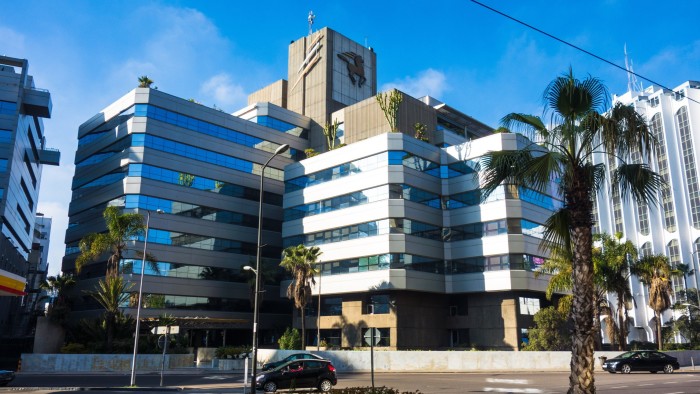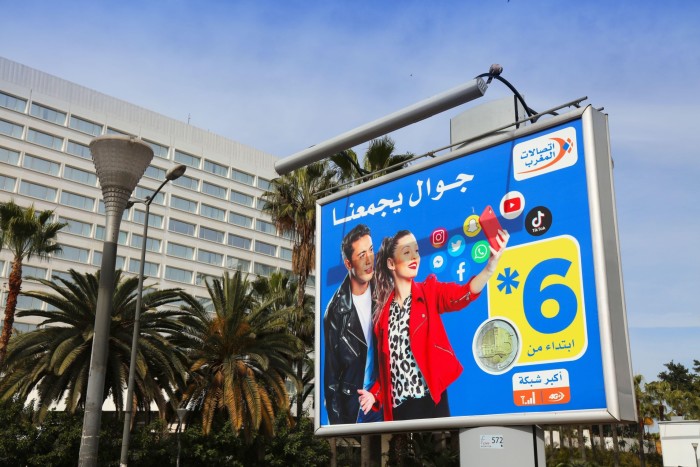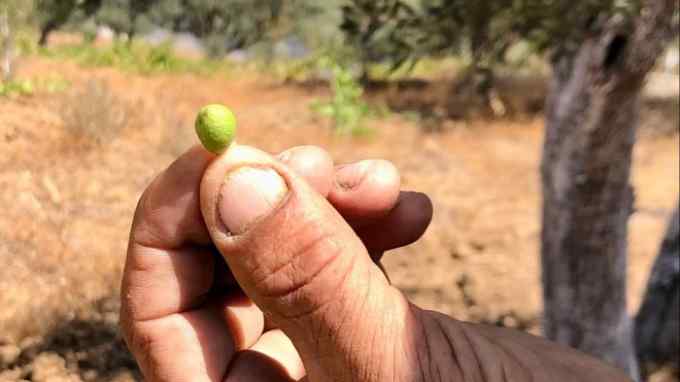Casablanca stakes claim to be ‘gateway’ to investing in Africa

Roula Khalaf, Editor of the FT, selects her favourite stories in this weekly newsletter.
Investment banks, brokers, and corporate organisation charts usually classify Morocco as part of the Middle East and north Africa, or MENA — reflecting the country’s strong cultural, linguistic and historical links with the Middle East. But Saïd Ibrahimi, chief executive of Casablanca Finance City, launched in 2010 to help promote Morocco as a “gateway” to investment in Africa, insists that thinking is wrong.
“We are more African than we are Middle Eastern,” he states unequivocally, rejecting the entire notion of sub-Saharan Africa as anachronistic. “Africa must trust Africa,” he says, quoting a 2014 speech in Abidjan in which Morocco’s King Mohammed VI made a commitment to strengthen ties with the continent.
Investment has risen substantially since that speech, which was followed, in 2017, by Morocco’s accession to the African Union following a 33-year absence from Africa’s main diplomatic bloc after a dispute over Western Sahara.
Morocco’s foreign direct investment into Africa has risen from some $100mn in 2014 to more than $800mn in 2021, by which time 43 per cent of its total FDI went to the continent, according to the finance ministry. That makes Morocco the second-largest African investor in the continent after South Africa, and the largest in west Africa, much of which is French-speaking.
Moroccan business interests across the continent are extensive.
Attijariwafa Bank, Banque Centrale Populaire and Bank of Africa, all headquartered in Casablanca, control more than a fifth of banking assets in west Africa. OCP Group, the state-owned phosphate and fertiliser manufacturer, operates in 16 African countries outside Morocco. Maroc Telecom has operations in Benin, Burkina Faso, Ivory Coast, Gabon, Mali, Mauritania, Niger, Chad, Togo and the Central African Republic.
“Moroccan companies are already investing a lot in Africa,” says Ouns Lemseffer, partner and co-head of francophone Africa for Clifford Chance, an international law firm, adding that she expects the trend to continue.
Trade has been far more patchy, however. Europe still accounts for about two-thirds of Moroccan exports, a dominant position that has been bolstered by fast-rising car exports. Moroccan exports to sub-Saharan Africa have grown steadily, but unspectacularly: they still accounted for only 6 per cent of the total in 2021, according to the World Bank.

Imports from sub-Saharan Africa are far lower still, at less than 1 per cent of the country’s total. Morocco has comprehensive, preferential trade agreements with Europe, the US, Turkey and others which, in effect, penalise imports from Africa. But the playing field should gradually level after Morocco ratified the African Continental Free Trade Area treaty last year, and as tariff barriers with other African countries continue to fall.
The relatively pallid trade performance within Africa countries highlights the risk of gambling on a continent whose economic prospects have faded in recent years. Growth in both Nigeria and South Africa, theoretically Africa’s twin economic engines, has crawled to a halt. Meanwhile, many other countries have been hit hard by Covid. Not only has the average growth rate slowed in many African countries, but debt levels have climbed, raising the prospect of a renewed debt crisis.
Some French-speaking west African countries, where Moroccan investments are heavily concentrated, have suffered, although Senegal, Ivory Coast and Togo have continued to grow quite fast. In some, economic downturn has contributed to political instability: no fewer than six states in the region — Guinea, Mali, Burkina Faso, Chad, Niger and Gabon — have had coups in the past three years.
“It’s doubtful that political instability is good for business,” Ibrahimi concedes. “We understand that there might be some fear from international corporations. But Morocco is really invested, and we don’t feel that such instability can stop the way we are approaching the continent. We are a country with a plan, and we have a long-term vision.”
Other African countries, including Egypt and Ethiopia, have been invited to become members of the Brics: the coalition of developing countries made up of Brazil, Russia, India, China and South Africa. Morocco has explicitly rejected the idea of joining, though. With its dependence on Europe as a market, Rabat has shown little interest in picking sides in a fracturing geopolitical landscape. “We are more of a bridge than a wall,” says Ibrahimi.
One element of that bridge is Casablanca Finance City, an economic development zone where more than 200 international companies are registered. As well as tax breaks, setting up in Casablanca offers prospective companies a well-developed legal, financial and regulatory system tested in many African markets, and direct flights to more than 20 African cities via Royal Air Maroc.
Boston Consulting Group manages its Africa practice from Casablanca. The city is also the francophone Africa headquarters for Huawei, the Chinese telecoms services and manufacturing company.
Mustapha Mourahib, managing partner at Clifford Chance’s Casablanca office, says: “We made the decision to open an office in Casablanca based on various criteria. We needed political stability, a country undergoing growth and economic development and where the regulatory regime and regulatory authorities are sophisticated.”
Even so, Casablanca has competition from other cities in its bid to become the African headquarters for global corporations. Cape Town, Johannesburg, Nairobi and Mauritius are among its biggest rivals. In west Africa, Dakar and Accra are also establishing business clusters.
Sanjeev Gupta, executive director for financial services at the Africa Finance Corporation, a pan-African infrastructure bank based in Nigeria, reckons the Gulf city Dubai may be Casablanca’s most formidable adversary.
“They’re trying their best, but it’s hard to compete with Dubai, which has links to virtually every country in the world and which is in the best timezone between Asia and Europe,” he says.
Still, Hakim Khelifa, senior partner at Africinvest, a private equity outfit specialising in Africa, says this firm made at least two investments initially in Morocco before expanding operations into other African countries, including Senegal and Kenya.
“The Moroccans are looking south,” says Khelifa. That makes the country a natural jumping-off point, he believes, for those looking in the same direction.

Comments